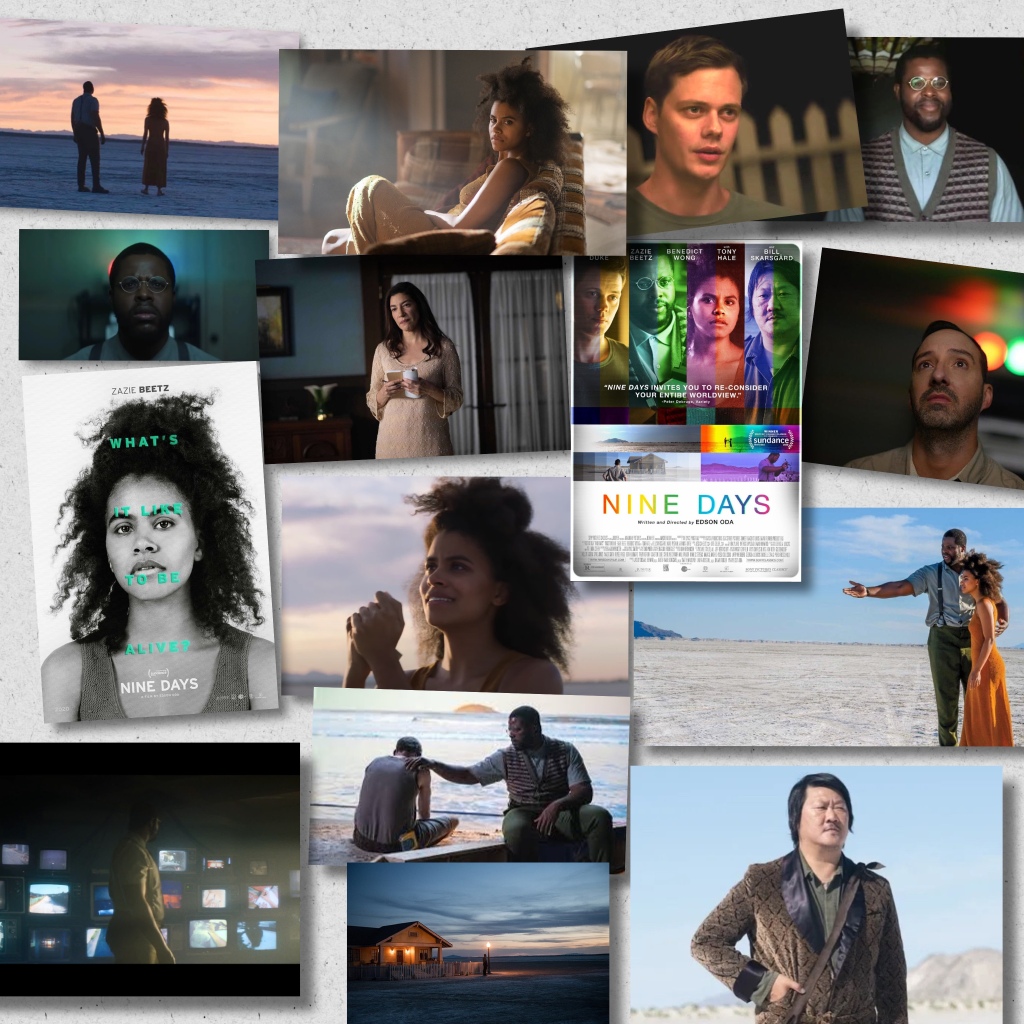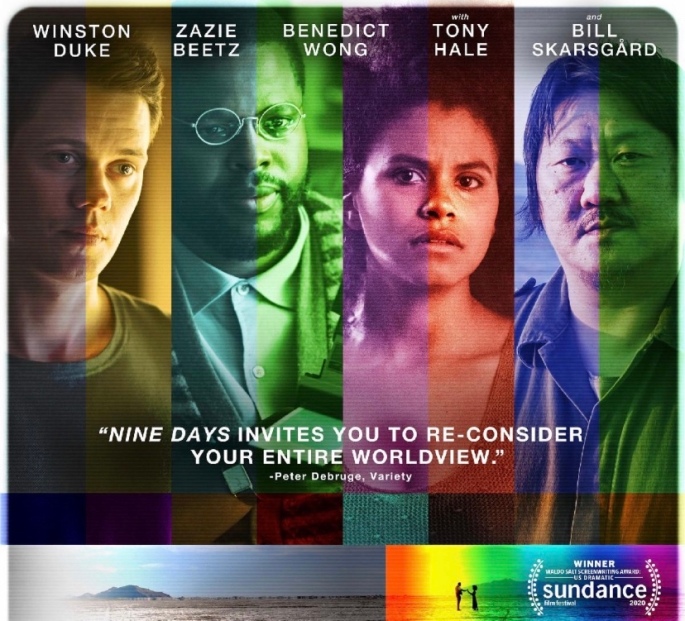
I’m just a kid from Canada who blathers on about movies on Facebook, I have no formal literary training or real clout in the journalism foray, and as such every once in a moon there comes a film that’s so good, so powerful, profound and so potentially life changing (what is cinema for, if not that?) that I feel it’s a bit above my pay grade to review it, but in the case of Edson Oda’s Nine Days I feel like I need to or you might miss this unbelievable, perspective shattering indie that seems to have come from nowhere but is here to rock our collective worlds and the lands beyond. The film presents to us a stoic, lone man called Will (Winston Duke, Us). Will lives in a rustic bungalow on a desolation of endless salt flats, and he sits in his house observing a wall of tube TV’s all displaying various human lives unfold in hazy POV. He takes periodic notes, records some of these moments onto VHS tapes and catalogues them in droves of filing cabinets. He’s visited by a colleague and advisor called Kyo (Benedict Wong, Annihilation, The Martian), and the two seem to be the only ones out there. It soon becomes clear that the people on the TV’s are humans living their lives in this world, and that Will and Kyo are in some other plane of existence, their task being to observe those who are alive and when an opening appears, to interview/audition potential new souls for a chance to be born in our world. When, through a heartbreaking tragedy, an opening does show up Will invites several souls into his house for the interview process including a quiet, observant introvert (Bill Skarsgard, It), a gregarious good timer (Tony Hale) and a startlingly observant, intuitive soul called Emma (Zazie Beetz, Deadpool 2, Joker). Now, usually a premise like this in films would be played for satire or just… not taken completely seriously but somehow this very wild concept couldn’t feel more down to earth in the hands of this creative team and, in hushed reverence, I believed every beat of it was happening for real. As Will interviews souls it becomes apparent that he is wounded from his time on earth in a way that is so deep and so painful that even these half formed human souls who aren’t even full beings yet, can somehow intuitively sense it. This goes especially for Emma, who is like an unbelievably precocious child that just picks up on intangible things as a sort of gift. As the selection process unfolds and more souls are eliminated it becomes clear that Will has to fix something broken deep within his own psyche, and this is where the film becomes downright transcendent and also where I just don’t feel qualified to properly convey the messages or themes, which are deep, dense and essential. It’s a film about not taking your time alive as a human being for granted, because there are so many unborn souls who may never get a chance. Not only are the themes compelling and thought provoking, they are multilayered, meditatively introspective and just ambiguous enough to feel like a real and flawed system of beings interacting in a world beyond our own. Wong’s wonderful character comments on the mysterious nature of both our existence and theirs and the aching existential wonder that any sort of being finds themselves in, the forces governing them always just out of reach. Duke and Beetz are unreasonably good here and if the Oscars ever took the time to recognize independent films they would both be front and centre, as would first time writer director Edson Oda (I simply CANNOT comprehending the fact that this is a feature debut, it’s TOO assured) and composer Antonio Pinto who weaves an original score too beautiful for words, full of melancholic, celestial string passages and hypnotic, dreamlike beats in between. One reviewer I saw on IMDb said about this film, and I quote, “After 60 years of watching movies, I’ve finally found the best one.” Well it’s obviously all subjective and personally I could never pick a singular, definitive “best movie ever,” the notion itself is redundant. However, I would consider Nine Days to be just about as close to perfection as one can get in the medium of film, that rare piece that just soars on every level and has the power to change lives. It’s getting a limited theatrical run at the moment and if you notice it playing in your city please go, it’s that one in a million film that lingers in your thoughts and dreams for a long time after, that elusive piece of art that doesn’t just exist onscreen for two hours before fading, but rather lives on in the hearts and minds of those who see it and takes on a soul of its own. Masterpiece and the best film of the year so far.
-Nate Hill


